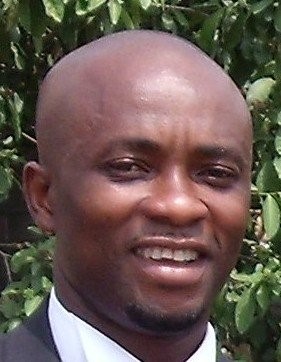“God is good, but never dance with a lion.” – African proverb
Whether you consider yourself a Machiavellian or not, there are many of us who have become his disciples. The drive to be successful energises many amongst us to handle and manage situations skilfully to serve our own aspirations and objectives. We have become good at using “emotional and psychological tactics to change or alter the perceptions and or behaviours of our partners, colleagues and others in an underhanded, deceptive, or even abusive way.” Put simply, many of us are using whatever power we have, to gain personal advantages at the expense of other people.
Deep down the depths of our hearts, the surprising majority amongst us start out with a desire to make a positive difference within our humanity. We want to bring out what is best about our human nature to the fore and to the top, with the hope that life will become more meaningful and enjoyable for all. This drive pushes us to aspire for greatness and its attendant privilege we call power. Interestingly for many of us, when we gain it, we do not necessarily use it for the greater good. And what instigates us to mishandle power is our culture’s traditional understanding of it.
Culturally, our understanding of power is found in extraordinary acts, and never in the mundane, everyday acts. We do not appreciate that every interaction is a power play. To this end, we misuse our power in our on-going interactions. For example, we only strive to inspire people when we mount the podium or speak in public. In our private interactions, we do the opposite. As a matter of fact, many of us display unethical behaviour and consequently encourage them in those around us. And to justify this madness, we label it as the ends often justify the means, even if it requires cunning and manipulation. This mindset is Machiavellian, and it encourages to advocate for the ranking of power and practicality over idealism.
This negative philosophy has seeped into the collective consciousness of many amongst us, and its effect is the society we have created. For those of us who do not know and yet have unknowingly become Niccolò Machiavelli’s disciples, he was an Italian philosopher, diplomat, and political theorist of the Renaissance, who left an indelible mark on the way we perceive and navigate the complex realm of power and politics. His most famous work is the ‘The Prince,’ in which his thinking about power reveals that it is something we grab from others rather than that it is given to us by them. It is the reason his book is considered as a manual for leader, exploring the ruthless strategies required to gain and maintain control over others in the rowdy world of governance. His pragmatic approach to controlling the masses has fascinated and polarised thinkers for centuries.
This unsettling view is sadly the way many of us perceive and use power. We set out to manipulate, rather than influence. Have you noticed how we pour superficial charm on people just to get them to do things for us, even if they must go beyond their responsibilities. That outpouring of compliments and praises pushes people to feel obligated and thus respond yes to our demands, though it may not be the right and proper way. By this, we are not striving to influence, but to manipulate. It is a use of force, ruthlessness and strategic coercion as propounded by Machiavelli.
Maybe you might not be a praise singer, but how often do you misinform others or give information you have not personally verified. Often, we do that to manipulate others to form negative perceptions of an issue, event or even another person. Sometimes, we even criticize those who are making sacrifices, with the hope that those hearing us will dislike their efforts or the person. The reason we label these examples as manipulation is because we use whatever respect or influence accorded us for a bad cause, to gain a personal advantage at the expense of another person. Not only are they unethical, but the negative energies they come with, inhibits what is good for our humanity.
As citizens of the world, it is about time we sync our understanding of power with the current cycle of research that argues that power is gained by acting in ways that improve the lives of other people in our everyday interactions and social networks. People accord us the opportunity to influence them because they believe that our intentions and actions will enhance their lives and that of many others, thereby making a positive difference in the world. This mean, we should never, ever manipulate others, for that attitude is tantamount to not only the misusing of trust, but also, a testament to the world that we are impulsive, out-of-control sociopaths…
__________________________________________________________________
Kodwo Brumpon is a partner at Brumpon & Kobla Ltd, a forward-thinking Pan African management consultancy and social impact firm driven by data analytics, with a focus on understanding the extraordinary potential and needs of organisations and businesses to help them cultivate synergies, that catapults into their strategic growth, and certifies their sustainability.
Comments, suggestions, and requests for talks and training should be sent to him at kodwo@brumponand kobla.com










